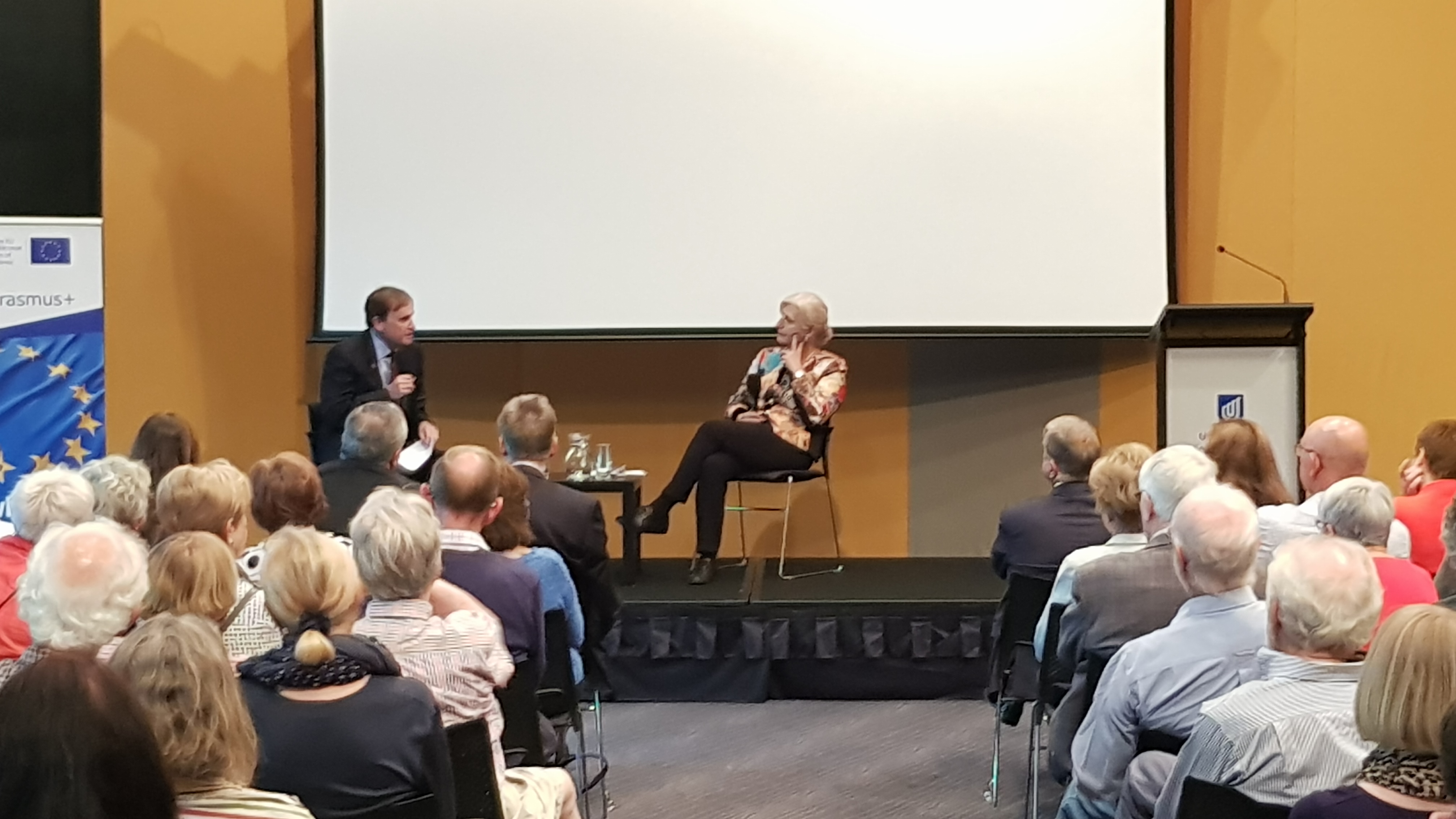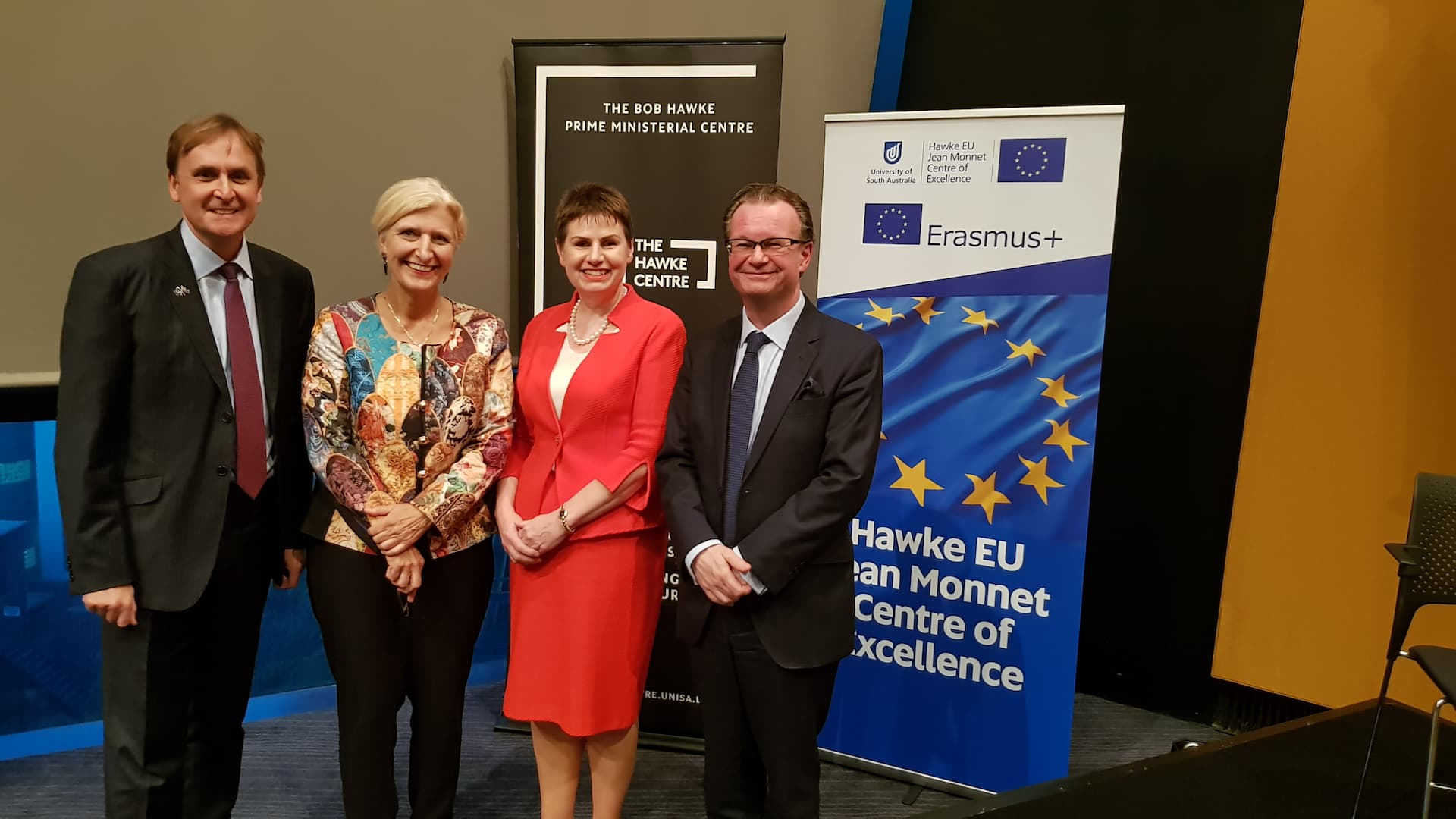01 March 2020

Summary of a public lecture by the former German Ambassador to Australia, H.E. Dr Anna Prinz (27 March 2019), written by Summer Scholar, Nathan Walsh.
On 27th of March 2019, Her Excellency Dr Anna Prinz delivered a lecture at the University of South Australia’s Hawke EU Jean Monnet Centre of Excellence. Introduced by the Hawke EU Centre Executive Director, Professor Anthony Elliot, Ambassador Prinz focused on the future of Europe, with the title of her discussion, ‘Europe - Quo Vadis: A German Perspective’. Throughout the evening’s discussion, Ambassador Prinz gave broad insights into the political and economic trajectories of Germany the European Union.
The future of the European Union has become a contentious subject in recent years thanks to the 2016 Brexit referendum in the UK. Ambassador Prinz started her lecture by firstly giving some historical context to the founding of the EU, followed by a brief analysis of the 5 scenarios outlined in the 2017 White Paper on the Future of Europe. With the end of the Cold War and the fall on the Berlin Wall in 1989, the various nation states within Europe wished for a means of peaceful and successful development into the future. The creation of the European Union enabled a stable political and economic framework for which to base societal and economic growth. Ambassador Prinz highlighted this fact by proclaiming, ‘We cannot live in peace if our neighbours suffer’. The internal migration unique to the EU region means cooperation becomes essential to all aspects of diplomacy and economic reform. This has helped the EU become the world’s second strongest economy in terms of GDP. A key point made by Ambassador Prinz is that before judging the current status of the European Union, it is important to acknowledge the EU’s achievements. These are not just in relation to the Euro, but also the work undertaken by the European Customs Union, the members of the Schengen Area and the Council of Europe.
In looking at the future of the EU, Ambassador Prinz highlighted the importance of growing the EU’s economy, particularly its digital and energy sectors. These sectors can provide the basis for trade and cooperation between the EU and Australia, which is also furthered by the currently underway development a Free Trade Agreement. However, Ambassador Prinz reiterated that the EU is more than a shared economy and it promotes collaboration on areas such as defence, internal security, taxation or social welfare. There is however further work to be done in spreading the benefits of EU membership across the member states. In looking at the future prospects of the EU, Ambassador Prinz held out the transition occurring away from coal-based energy and the implementation of the Galileo Project as examples of highly successful EU policies. Ambassador Prinz suggested that the level of European cooperation demonstrated in these projects could be harnessed to create a European Defence Union
In discussing the relationship specifically between Australian and German, Ambassador Prinz stated that similarities between the economies of these two nations opened possibilities for trade and co-investment. Industries including the development of renewables and high-tech manufacturing are something that workforces in Germany and Australia can both engage in. This also involves the implementation of Industry 4.0 forms of connectivity that link international supply chains.





